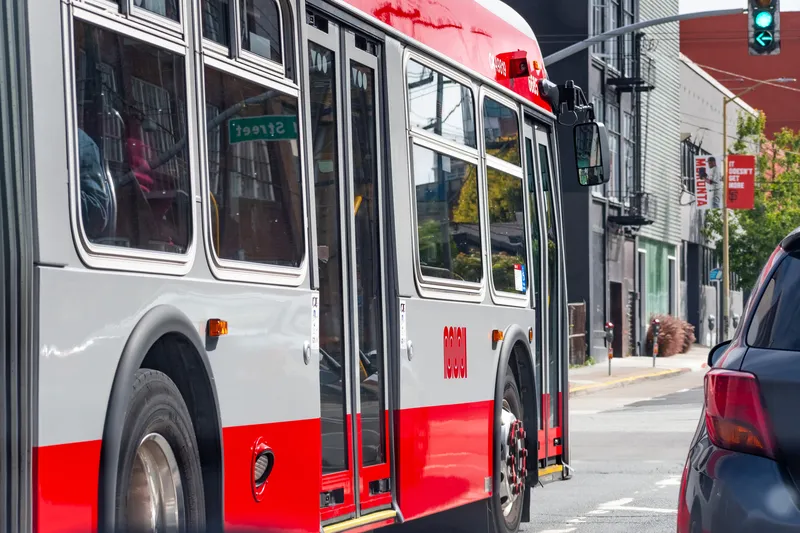
With the age of artificial intelligence appearing to be a major issue for transport authorities, a new report suggests driver and safety concerns are paramount.
Optibus' 2025 State of Public Transportation Report concludes that there is a need for public transport operators (PTOs) and public transport authorities (PTAs) to focus on driver-centric strategies, electrification planning, AI readiness and real-time monitoring investments in order to improve service quality.
As industry professionals navigate these priorities, technology-driven solutions will play a crucial role in shaping the future of public transportation.
Driver safety and retention is the most critical organisational goal, according to the report. Workforce challenges, particularly driver recruitment, retention and safety, are top priority for 36% of public transportation organisations globally. In some regions, such as the UK, Germany and Austria, this rises to 45%, highlighting the urgency of addressing driver-related concerns.
Retention and recruitment are cited as the biggest workforce challenges by 49% of respondents, while 37% emphasise driver safety as a major concern. To address these issues, 48% of agencies are exploring real-time shift adjustment tools and 37% are investing in driver safety technologies.
Meanwhile, electrification of fleets is becoming a more important issue, moving from ‘important’ to ‘essential’, according to respondents. The transition to zero-emission fleets is becoming significantly more important. Nearly 90% of respondents consider the transition to zero-emission fleets as at least 'moderately important'. Within the next five years, electrification will become a critical goal or top priority for the vast majority of survey respondents.
Despite mounting regulatory pressure and sustainability commitments, 80% cite infrastructure delays as a key challenge, alongside funding shortages and regulatory hurdles.
Among planned technology investments, real-time monitoring ranks as the top priority (43%). The lack of real-time tools already contributes to financial losses, with 48% of agencies reporting moderate losses and 20% experiencing significant financial strain due to delays in operational responses.
On the other hand, respondents said that artificial intelligence remains a low investment priority, despite it being a high-interest area for organisations. While 96% of respondents have explored AI, full adoption remains slow, with only 6% actively using AI and 36% planning to invest in it. This gap between exploration and investment underscores key barriers such as implementation challenges, integration complexities and difficulties in measuring any return on investment.
The report is based on a survey conducted in December last year in collaboration with Global Surveyz, an independent survey firm. It involved 231 senior professionals across key operational and strategic roles in organisations with fleets of 20 or more vehicles or those involved in public transportation operations without a direct fleet. The roles of respondents included heads of scheduling and planning, fleet and depot managers as well as chief executives information, operation and finance officers. They were located in North America, Europe, Latin America and the Asia-Pacific region.
Optibus said that it conducted this survey to assess key industry concerns including driver shortages, the transition to zero-emission fleets and the adoption of new technologies. The goal was to validate assumptions, identify potential oversights and explore how priorities differ across regions.
Optibus is a software platform provider for public transportation planning, scheduling, rostering, operations and passenger information.








